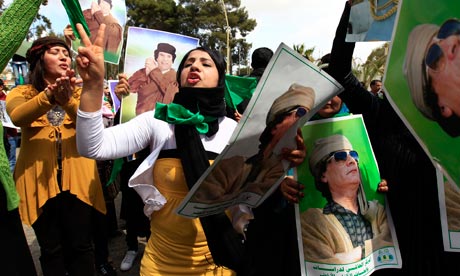THE sight of corrupt old Arab tyrants being toppled at the behest of a new generation of young idealists, inspired by democracy, united by Facebook and excited by the notion of opening up to a wider world, has thrilled observers everywhere. Those revolutions are still in full swing, albeit at different points in the cycle. In Tunisia and Egypt they are going the right way, with a hopeful new mood prevailing and free elections in the offing. In Libya, Syria and Yemen dictators are clinging on to power, with varying degrees of success. And in the Gulf monarchs are struggling to fend off demands for democracy with oil-funded largesse topped by modest and grudging political concessions.
So far these revolts have appeared to be largely secular in character. Westerners have been quietly relieved by that. Not that they are all against religion. Many—Americans in particular—are devout. But by and large, they prefer their own variety to anybody else’s, and since September 11th 2001, they have been especially nervous about Islam.
Now, however, there are signs that Islam is a growing force in the Arab revolutions (see
article). That makes secular-minded and liberal people, both Arabs and Westerners, queasy. They fear that the Arab awakening might be hijacked by the sort of Islamists who reject a pluralist version of democracy, oppress women and fly the flag of
jihadagainst Christians and Jews. They worry that the murderous militancy that has killed 30,000 over the past four years in Pakistan (see
article) may emerge in the Arab world too.
In Libya the transitional national council, slowly gaining recognition as a government-in-waiting, is a medley of secular liberals and Islamists. There are Libyan jihadist veterans of Iraq and Afghanistan among the rebels, though not in big numbers. An American general detects “flickers of al-Qaeda” among the colonel’s foes being helped by the West, raising uncomfortable memories of America’s alliance against the Russians with Afghanistan’s mujahideen, before they turned into al-Qaeda and the Taliban.
The Muslim Brotherhood, which has branches all over the region, is the best-run opposition movement in Libya and Egypt; and last week’s constitutional referendum in Egypt went the way the Brothers wanted it to. Its members have long suffered at the hands both of Western-backed regimes, such as Hosni Mubarak’s in Egypt, and of anti-Western secular ones, such as Bashar Assad’s, now under extreme pressure in Syria. In Tunisia, too, the Islamists, previously banned, look well-placed. On the whole, these Brothers have gone out of their way to reassure the West that they nowadays disavow violence in pursuit of their aims, believe in multiparty democracy, endorse women’s rights and would refrain from imposing sharia law wholesale, were they to form a government in any of the countries where they are re-emerging as legal parties.
more -
http://www.economist.com/node/18486005?Story_ID=18486005
--




